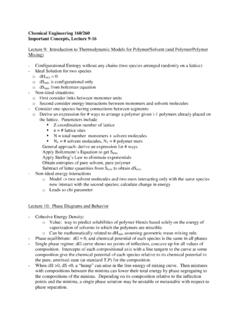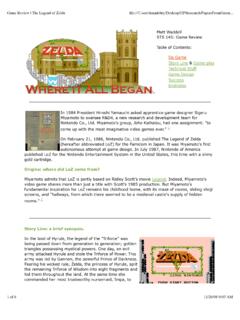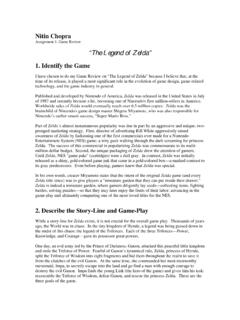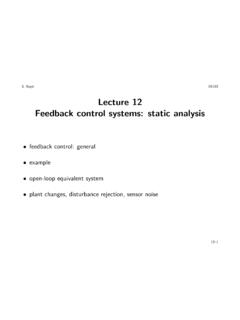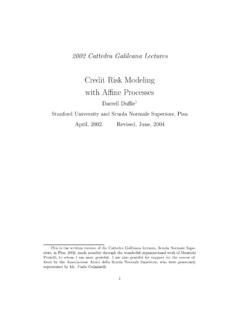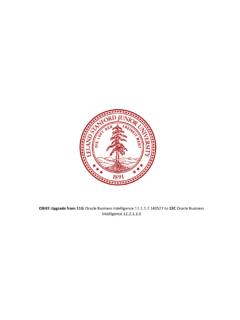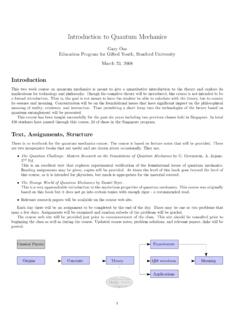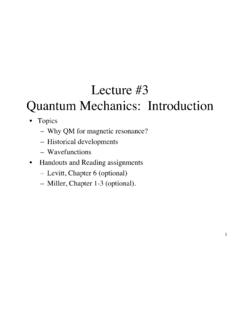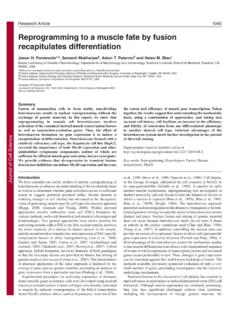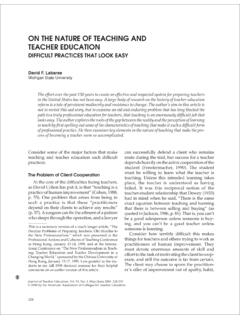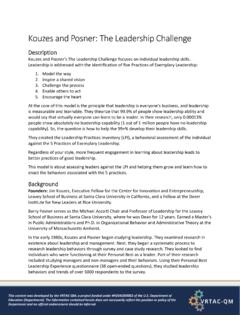Transcription of BOOK I - Stanford University
1 LIST OF DATES OF EVENTS community at Thagaste, but he was permitted to found a new monas-tery near Hippo. In 396 he was consecrated assistant bishop of Hippo to aid the aged Valerius who died a year later. The care of the diocese now fell upon Augustine-and was to occupy him fully for the rest of his life. Besides his pastoral work Augustine was a powerful adversary of all heretics and enemies of the Church. Much of his prodigious literary output was devoted to this cause, but the importance of the Confessions (Confessiones), written in 397-8, is as a personal document and statement of faith. In 410 came the sack of Rome by Alaric and the Goths. This was the occasion which inspired Augustine to write City of God (De civitate Dei), his great work in twenty-two books, begun in 413 and completed in 426.
2 The fall of the city after a thousand years, during which no foreign invader had penetrated its walls, was attributed by many to loss of faith in the pagan gods, whose cult had recently been largely suppressed by the joint emperors Gratian and Theodosius. The disaster was hailed as a direct consequence of the spread of Christianity, and this was a challenge which Augustine could not ignore. Mter dis-proving the claim that the prosperity of man depended upon the pro-pitiation of a miscellaneous array of gods, he went on to define the Christian answer to the religious, philosophical, and political problems of the world and its government. The Confessions and the City of God rightly belong to the great liter-ature of the world. Augustine's numerous other works are read chiefly by theologians and scholars.
3 In addition to a great many letters and sermons, of which about five hundred have been preserved, he wrote books on theology and philosophy, controversial works against the Manichees, Donatists, and Pelagians, and works of biblical-exegesis. In 428 the Vandals invaded North Africa and Hippo was under siege from May 430 to July 431 In the fourth month of the siege, on 28 August 430, Augustine died. In 497, when the Arian king of the Van-dals, Thrasamund, forced the bishops to leave Numidia, they carried Augustine's remains with them to Sardinia. The island was repeatedly raided by the Saracens in the eighth century and during the incursion of 721-2, to save the body from desecration, Liutprand, king of the Lombards, sent envoys to ransom it. They brought it to Pavia in north-ern Italy, where it was re-interred in the monastery of San Pietro in Ciel d'Oro.
4 BOOK I I CAN any praise be worthy of the Lord's majesty?l How magnificent his strength! How inscrutable his wisdoml2 Man is one of your creatures, Lord, and his instinct is to praise you. He bears about him the mark of death, the sign of his own sin, to remind him that you thwart the But still, since he is a part of your creation, he wishes to praise you. The thought of you stirs him so deeply that he cannot be content unless he praises you, because you made us for yourself and our hearts find no peace until they rest in you. Grant me, Lord, to know and understand whether a man is first to pray to you for help or to praise you, and whether he must know you before he can call you to his aid. Ifhe does not know you, how can he pray to you? For he may call for some other help, mistaking it for yours.
5 ' Or are men to pray to you and learn to know you through their prayers? Only, how are they to call upon the Lord until they have leamed to believe in him? And how are they to believe in him without a preacher to listen to?' Those who look for the Lord will cry out in praise of him,li because all who look for him shall fmd him, and when they find him they will praise him. I shall look for you, Lord, by praying to you and as I pray I shall believe in you, because we have had preachers to , tell us about you. It is my faith dlat calls to you, Lord, the faith which you gave me and made to live in me through the merits of your Son, who became man, and through the ministry of your preacher. , 1 Ps. 144: 3 (145: 3). In references to the Psalms the number according to the Vulgate is given first.
6 This is followed by the Authorized Version number in brackets. IPs. 146: S (147: 5). 8 I v. S. , Rom. 10: 14-& PI. 21: 27 (22: 26). 21 SAINT A UGUSTINB CONFBSSIONS 2 How shall I call upon my God for aid, when the call I make is for my Lord and my God to come into myself? What place is there in me to which my God can come, what place that can receive the God who made heaven and earth? Does this then mean. 0 Lord my God, that there is in me something fit to contain you? Can even heaven and earth, which you made and in which you made me, contain yoU? Or, since nothing that exists could exist without you, does this mean that whatever exists does, in this sense, contain yOU? If this is so, since I too exist, why do I ask you to come into me? For I should not be there at all unless, in this way, you were already present within me.
7 I am not in hell, and yet you are there too, for if I sink down to the world beneath, you are present So, then, I should be null and void and could not exist at all, if you, my God, were not in me. Or is it rather that I should 'not exist, unless I existed in you? For all things find in you their origin, their impulse, the centre of their being. This, Lord, is the true answer to my question. But if I exist in you, how can I call upon you to come to me? And where would you come from? For you, my God, have said that youfil1 heaven and earth,' but I cannot go beyond the bounds of heaven and earth so that you may leave them to come to me. 3 Do heaven' and earth, then, contain the whole of you, since you fill them? Or, when once you have filled them, is some part of you left over because they are too small to hold you?
8 If this is so, when you have filled heaven and earth, does that part of you which remains flow over into some other place? Or is it that you have no need to be contained in anything, because you contain all things in yourself and fill them by reason of the very fact that you contain them? For the things which you fill by containing them do not sustain and support you as a water-vessel supports the, liquid which fills it. Even if they were broken to pieces, you would not flow out of them and away. And when you pour yourself out over us, you are not drawn down to us but draw us up to yourself : you are not scattered away, but you gather us together. 1 PI. 138: 8 (139: 8). I Rom. II! 36- r BOOK I You fill all things, but do you fill them with your whole self? Or is it that the whole of creation is too small to hold you and therefore holds only a part of you?
9 And is this same part of you present in all things at once, or do different things contain different parts of you, greater or smaller according to their size? Does this mean that one part of you is greater and another smaller? Or are you present entirely everywhere at once, and no single thing contains the whole of you? 4 What, then, is the God I worship? He can be none but the Lord God himself, for who but the Lord is God? What other refuge can there be, except our God?1 You, my God,' are supreme, utmost in goodness: mightiest and all-powerful, most merciful and most just. You are the most hidden from us and yet the most present amongst us, the most beautiful and yet the most strong, ever enduring and yet we cannot! comprehend you. You are unchangeable and yet you change all things.
10 You are never new, never old, and yet all things have new life from you. You are the unseen power that brings decline upon the proud. You are ever active, yet always at rest. You gather all things to yourself , though you suffer no need. You support, you fill, and you protect all things. You create them, nourish them, and bring them to perfection. You seek to make them your own, though you lack for nothing. You love your creatures, but with a gentle love. You treasure them, but without apprehension. You grieve for wrong, but suffer no pain. You can be angry and yet serene. Your works are varied, but your purpose is one and the same. You welcome all who come to you, though you never lost them. You are never in need yet are glad to gain, never covetous yet you exact a return for your gifts.
